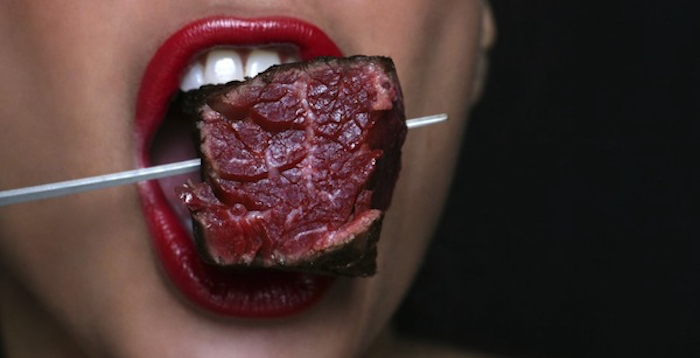What is Rejection?
Table of Contents
Rejection is a feeling we generate within ourselves when our targeted prospect appears to rebuff us. But it is the situation that is being turned down, not you. A famous Hollywood actress once joked about the many “rejections” she received before achieving her ultimate success. Of the various roles for which she auditioned, she was, she laughed, “too fat, too thin, too short, too tall, too glamorous, too plain, and on and on.” In other words, she learned that rejection is temporary and situational. In fact, this actress, who is a very “Pretty Woman,” also admitted to having been rejected numerous times by the opposite sex. So you see, everyone on this planet has been rejected by someone, somewhere at some time or other.
In a vast, ever-moving sea of five billion people, your quota of rejection may actually be smaller than you think. According to a couple of Webster’s many definitions of rejection, the word can simply mean “to refuse to take,” or “to decline.”
Do you suppose flowers feel rejected if you don’t pick them? No, they can bask in their beauty whether anyone picks them or not. Do animals at the pet store feel rejected if you are unable to give them a good home? Who knows, but your rejection of the pet does not mean it is an unworthy animal. And most likely, the little animal will attract the right home despite many “rejections.”
Let’s take this definition game a bit further. If we look up “rejection” in Roget’s Thesaurus, we find corresponding terms like “setback” and “reverse.” These are not quite so scary as a downright refusal. Setbacks are only delays, and reverse just means to turn around and keep going until you find the right direction.
Curiously, rejection can be one of your guardian angels. Rejection may be an indicator of wrong timing, the wrong pathway, or the wrong situation for you. Rejection may be fate barring you from an even worse experience than being turned down. Rejection may mean that you’ve been spared a limited partnership with someone who is not quite on your wavelength. Or rejection can be nature’s way of telling you to reassess who you are and what you want.
Rejection In Dating
Rick, a 35-year-old single man, submitted a personal ad with his photo to an internet dating service. While he received both favorable and unfavorable responses, he discovered what the famous actress had learned: a rejection can indicate that it is just not the right time and place for what you are seeking.
“I was too bald for one person and not bald enough for another person; too young or too old,” Rick said, expressing frustration. But he learned something important about rejection: “I began to question where I really fit in; I read magazine articles about other people like myself. I decided I needed to broaden my horizons and interests. The rejections were not about my age and hairstyle. I had to reevaluate how I was presenting myself, and to whom. Maybe my ads weren’t being seen by people compatible with who I am.”
Rejection is a feeling of powerlessness that can make you falsely feel you are not in control. Someone turned you down; the final decision was in their hands. But you are in control; that is the key. As an adult, you have the power to let rejection work for you, not against you.
When you feel rejected, it is nature’s way of telling you to take the power back. Rejection is just a stepping stone to get you from one side of the river to the other, or shall we say, one goal at a time. Rejection can be momentary. The situation may change, or the targeted date may change his/her mind at another time. Rejection is just a healthy signal to move on, for the moment.
What Rejection Is Not
Rejection is not failure.
But a rejection can make you feel that you have failed. It is this feeling of failure which it becomes necessary for us to conquer. Otherwise, a simple turn-down can be blown out of proportion to reality.
The sense of failure you experience may be telling you that you are taking on too much responsibility for the situation. Many reasons exist as to why another person may say “no”, and those reasons are rarely a personal attack on you. Stop and think twice before you let other people’s “cold-shoulder” cause you to feel like an unacceptable human specimen. You don’t know what is going on in their lives. They may already be attached, they may have health or financial problems, they could be moving to another state, they may be afraid of being hurt, they may be unhappy with their job, or their dog could have just died.
Rejection is not a total loss, even though it feels that way at first. We just met the one person who we think is everything we have been looking to find… and to our absolute shock and dismay, that person has the temerity to turn us down. Will we ever meet anyone like this again?
In a world of millions of single people, the possibilities of who you can meet defy imagination, especially as the world grows much smaller through computers and more social mobility. This temporary feeling of loss is a grieving for the intimacy we hoped we had, at last, found. And it slipped through our fingertips by a single “no.”
What did you do wrong? What did you say wrong? Why doesn’t the other person see your compatibility with him or her? While it can be helpful to analyze your appearance or your approach, don’t sweat the small stuff. You met someone in a fleeting moment; it was simply an opportunity that didn’t come to pass. You never lost what you never had. The person or situation simply may not be as compatible as you first thought it to be. And, “the fish that got away” makes room for a whole new school of fish that will swim in your direction.
Rejection is Not Final
You may run into that potential great love again and see each other differently. Why not keep the door open? You never know what can come out of a chance encounter: maybe a friendship or a good business connection.
Suzanne is a cheerful, middle-aged woman who refuses to accept rejection. She follows up until people absolutely slam the door in her face. Eventually one of her rejecters matched her up with his best friend.
“Another man who blew me off in the worst way asked me out a year later,” Suzanne said. “He explained that he hadn’t been ready for anyone like me when we first met; but when he looked me up a year later, we had a great time together.”
Rejection is not a terminal illness unless you make it so in your mind. Rejection is not a stopping point, only a detour. And anyone’s rejection of you is not a finalized evaluation of you or your character. Only you and those close to you can determine that.
Another woman, Kyra, was rejected by a good-looking younger man who lived next door to her best friend Elise. Kyra was not looking or feeling her best before this happened; so she was unconsciously sending out an unpleasant signal to people. She dressed in baggy jeans, seldom wore makeup, and had a perpetual “bad hair day.”
Two weeks later, Kyra visited her friend Elise again, but her appearance and manner had changed. Kyra was feeling better about herself in general and it showed. She and Elise were going out to a concert. So Kyra had taken time to create a fluffy new hairstyle for herself and she had donned an elegant, form-fitting black dress. The young man spotted her again and said “Is that the same woman? I want to go out with her!” Kyra’s outer appearance changed when she felt better about herself.
Moral of the story: “When you feel good on the inside, you want to look good on the outside.” Kyra had invested time and energy in herself. And it was her new self-confidence that attracted the young man.
Real-Life Revelation
Leo is a very successful businessman in the boardroom, but not in the bedroom. Whenever he would see a woman who attracted him, Leo would become a jangle of nerves.
“I would turn to putty inside,” Leo said. “I couldn’t get my words out, and I felt like a blithering idiot.” Leo had to cross over a big gully that we all face, working up the confidence to initiate a conversation. When Leo came to me as a client, I encouraged him to practice by talking with women in the supermarket. Together, Leo and I came up with a few opening lines that were comfortable for him.
For example, since he likes guacamole anyway, I asked him to approach women in the market and ask them: “Can you help me find a ripe avocado, please?” His homework assignment was to ask this question of every female he spotted in the market, whether he was attracted to each woman or not. With practice, Leo became less inhibited and more comfortable chatting with women. In fact, soon he was sharing recipes with several ladies he confronted.
Well, before you know it, Leo progressed from the supermarket to the mall, then the health club, and even to his church. With each scenario, I gave him a new opening line to use over and over again with women until his fear turned to confidence. Leo soon developed the leonine boldness of a lion. He must have been radiating self- assurance, because ironically the woman he is now dating is a lady who first approached him! Leo told me, though, that he would never have been able to maintain a conversation with her if he had not overcome his fear of rejection first.
How To Change Your Perception of Rejection
How to Move Beyond Rejection




























